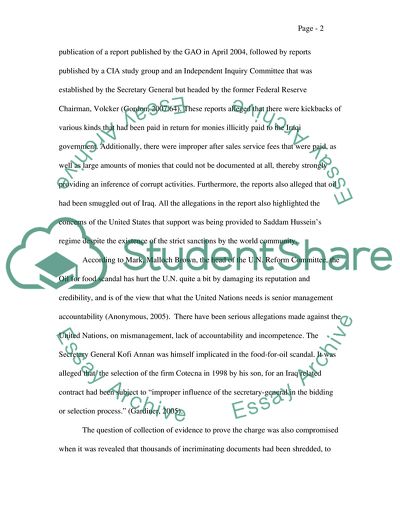Cite this document
(Recent Scandals at the United Nations Coursework, n.d.)
Recent Scandals at the United Nations Coursework. Retrieved from https://studentshare.org/politics/1715229-do-recent-scandals-at-the-un-fundamentally-undermine-the-credibility-of-the-organization-or-are-they-merely-secondary-importance
Recent Scandals at the United Nations Coursework. Retrieved from https://studentshare.org/politics/1715229-do-recent-scandals-at-the-un-fundamentally-undermine-the-credibility-of-the-organization-or-are-they-merely-secondary-importance
(Recent Scandals at the United Nations Coursework)
Recent Scandals at the United Nations Coursework. https://studentshare.org/politics/1715229-do-recent-scandals-at-the-un-fundamentally-undermine-the-credibility-of-the-organization-or-are-they-merely-secondary-importance.
Recent Scandals at the United Nations Coursework. https://studentshare.org/politics/1715229-do-recent-scandals-at-the-un-fundamentally-undermine-the-credibility-of-the-organization-or-are-they-merely-secondary-importance.
“Recent Scandals at the United Nations Coursework”. https://studentshare.org/politics/1715229-do-recent-scandals-at-the-un-fundamentally-undermine-the-credibility-of-the-organization-or-are-they-merely-secondary-importance.


